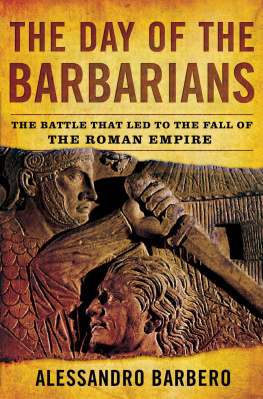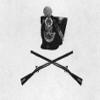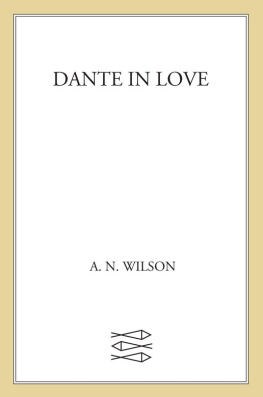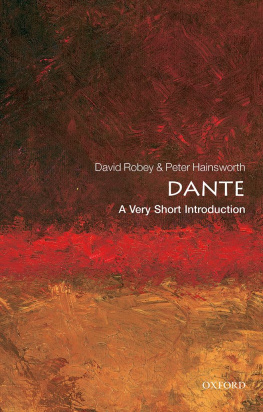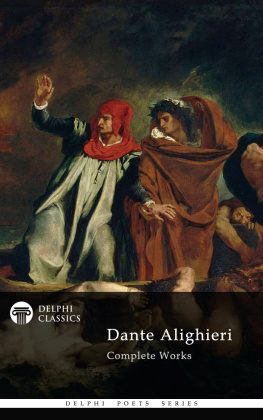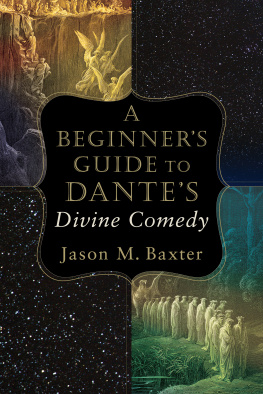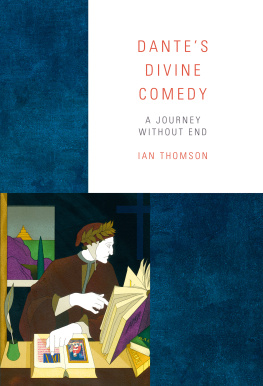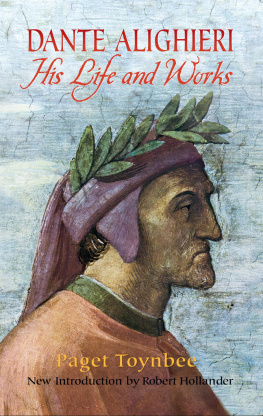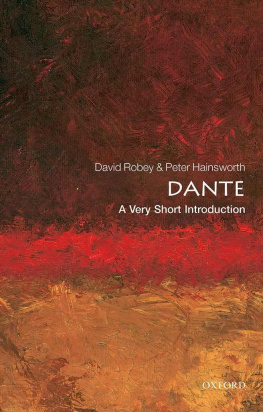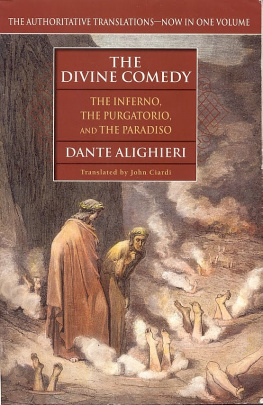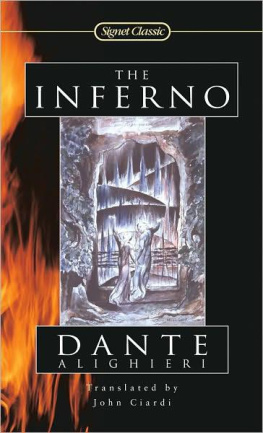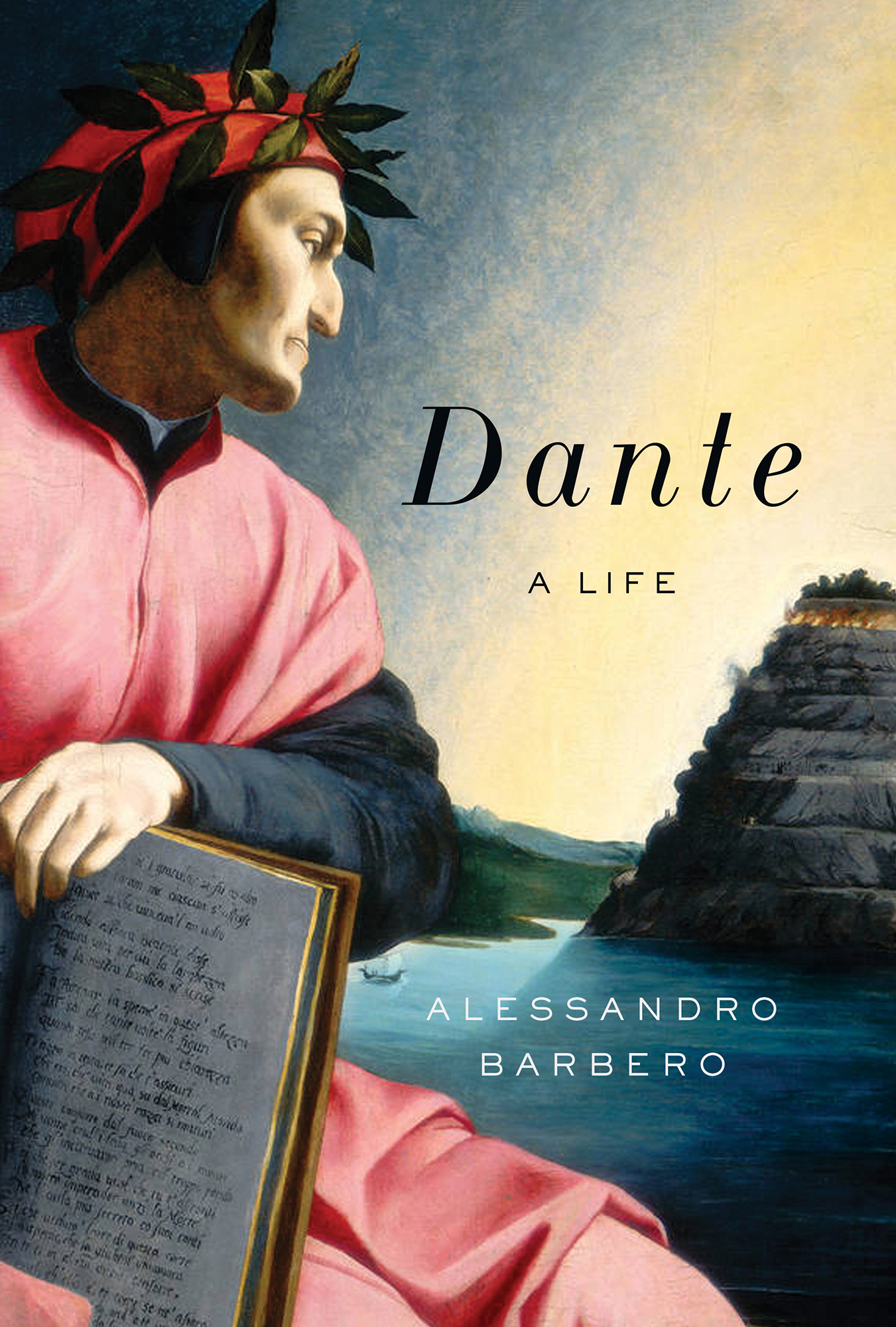Contents
Guide
Dante
A Life
Alessandro Barbero
DANTE
Pegasus Books, Ltd.
148 West 37th Street, 13th Floor
New York, NY 10018
Copyright 2022 by Alessandro Barbero
First Pegasus Books cloth edition January 2022
All rights reserved. No part of this book may be reproduced in whole or in part without written permission from the publisher, except by reviewers who may quote brief excerpts in connection with a review in a newspaper, magazine, or electronic publication; nor may any part of this book be reproduced, stored in a retrieval system, or transmitted in any form or by any means electronic, mechanical, photocopying, recording, or other, without written permission from the publisher.
ISBN: 978-1-64313-913-5
Ebook ISBN: 978-1-64313-914-2
Front cover image Artokoloro / Alamy Stock Photo
Distributed by Simon & Schuster
www.pegasusbooks.com
GLOSSARY
Captains of the War:twelve experienced knights who acted as a general would in directing the battle; each of the six
sesti would appoint two Captains of the War.
citizen knights (
cittadini con cavallate):those who came from wealthy families but did not wish to become dubbed knights were still obliged by the city government to provide a war horse, military equipment and a rider, who in practice was nearly always the owner himself or a member of the family (see dubbed knight).
Council of the Hundred:the council elected from wealthiest citizens who were paying the most tax possessing greater riches [they] carry a higher burden of expenses, as stated in its charter.
dubbed knight (
cavaliere di corredo):anyone who belonged to a rich family and was willing to spend large sums on the ceremony of becoming a knight and then maintaining the required lifestyle; during the popular regime this status excluded them from the councils of government (see citizen knights).
fat commoners (
popolo grasso):wealthy commoners, socially not much inferior to knightly families but still involved in business and not necessarily keen to have their young men dubbed as knights and to maintain an aristocratic lifestyle.
gold florins:originally a gold coin minted in Florence and worth one pound of smaller silver coins (
lira), but as time went on, it came to have an even greater value as the rate of exchange between gold and silver changed.
government of the First People:form of popular government (involving greater participation by commoners) from 1250 to 1260.
government of the Second People:the government of the Republic of Florence from 1266, with businessmen and artisans in power and noble families gradually excluded.
Kingdom of Italy or Regnum Ytaliae:following the break-up of the Carolingian Empire, this disputed entity came into being and continued until the early eleventh century, after which the kingship became no more than an appendage of the Holy Roman Emperor, and was only a reality in as much as the emperor could exert his power over the Italian peninsula, which was not very often.
magnates:members of families who followed a chivalric lifestyle; a group mainly composed of longer noble lineages, but open to those who acquired wealth more recently if they chose to cease their lesser business activities, although they often retained large holdings assets in banking.
Office of Rebel Assets:government department responsible for the management of assets confiscated from exiled members of the party not in power.
Ordinances of Justice (
ordinamenti di giustizia):laws devised by Giano della Bella in 1293 that excluded the magnates from government posts in consequence of their frequent resort to violence.
priors:six priors elected for two-monthly mandates, who constituted the government for that short period.
small florins:silver pennies minted in Florence, whose rate of exchange steadily deteriorated in relation to gold florins.
supreme magistrate (
podest):each medieval city-state appointed a supreme magistrate who held a large part of the executive and judicial power and was a professional, but his mandate usually lasted for one year; he administered justice and commanded the army, but he came from another city and was subject to an inquiry on termination of his contract.
Tuscia Alliance (
Taglia di Tuscia):an alliance that united all the cities governed by Guelphs, and which also had an international reference point the papacy whose wishes could not be ignored.Some terms have remained in Italian, because the use of an English equivalent would probably have confused readers rather than aided them:
feditori:knights chosen by the Captains of the War to join the first rank of knights on the battlefield;
gonfalonieri:standard-bearers, of which the most important was the
Gonfaloniere di Giustizia, who oversaw the procedures of the six priors who constituted the government;
sesto (plural:
sesti):one of the six administrative districts Florence was divided into.
I NTRODUCTION WHY DANTE MATTERS
This is the life of the man whom T. S. Eliot placed on a par with Shakespeare: Dante and Shakespeare divide the modern world between them; there is no third (in truth, Eliot went even further on the radio, when he claimed that Dante is at least as great as Shakespeare, which is self-evident for an Italian but provoked a little resentment among anglophone men and women of letters). James Joyce, another of the twentieth-century greats, put him on an even higher pedestal: I love Dante almost as much as the Bible. He is my spiritual food, the rest is ballast. We should be put on our guard about all the prejudices against the Middle Ages by a voice that can hail from that epoch and still speak with such intensity to the modern world: it was no more a dark age than the twentieth century, by which I mean that it was an era of great violence, but also of extraordinary creativity and intellectual subtlety. It was a modern age in every sense of the term, and not without reason did Eliot assert that Dante had shared out modernity with Shakespeare between themselves.
However, this modernity the very same which had medieval intellectuals referring to themselves as modern does not mean that a little preparation is not required if we are to measure up to Dantes contemporaries and understand them. We are inclined to value them and enjoy their company, just as we value or rather revere the magnificent cathedrals they built, but which the Renaissance humanists and the seventeenth-century Enlightenment thinkers considered to be the products of a barbarian culture of Goths, and hence a Gothic architecture. Their world the medieval world was full of institutions and regulations whose names in themselves tell us nothing, and yet we need to be introduced to them if we are to share the journey Dante undertook or was obliged to follow amid the temptations and dangers of his times.
Europe and Italy at the Time of Dante
Dante was born in 1265 in Florence, Tuscany, and died in 1321 in Ravenna, Emilia-Romagna, exactly 700 years ago. When he was born, King Henry III of England was busy suppressing the Second Barons War, which culminated with a decisive royal victory at the Battle of Evesham and the death of Simon de Monfort, when Dante was three months old. Most of Dantes life corresponded to the reign of Edward I. During the years in which the Florentine poet, having passed his thirtieth year, was politically active in his native city, King Edward had to tackle William Wallaces rebellion, which became famous after the film


